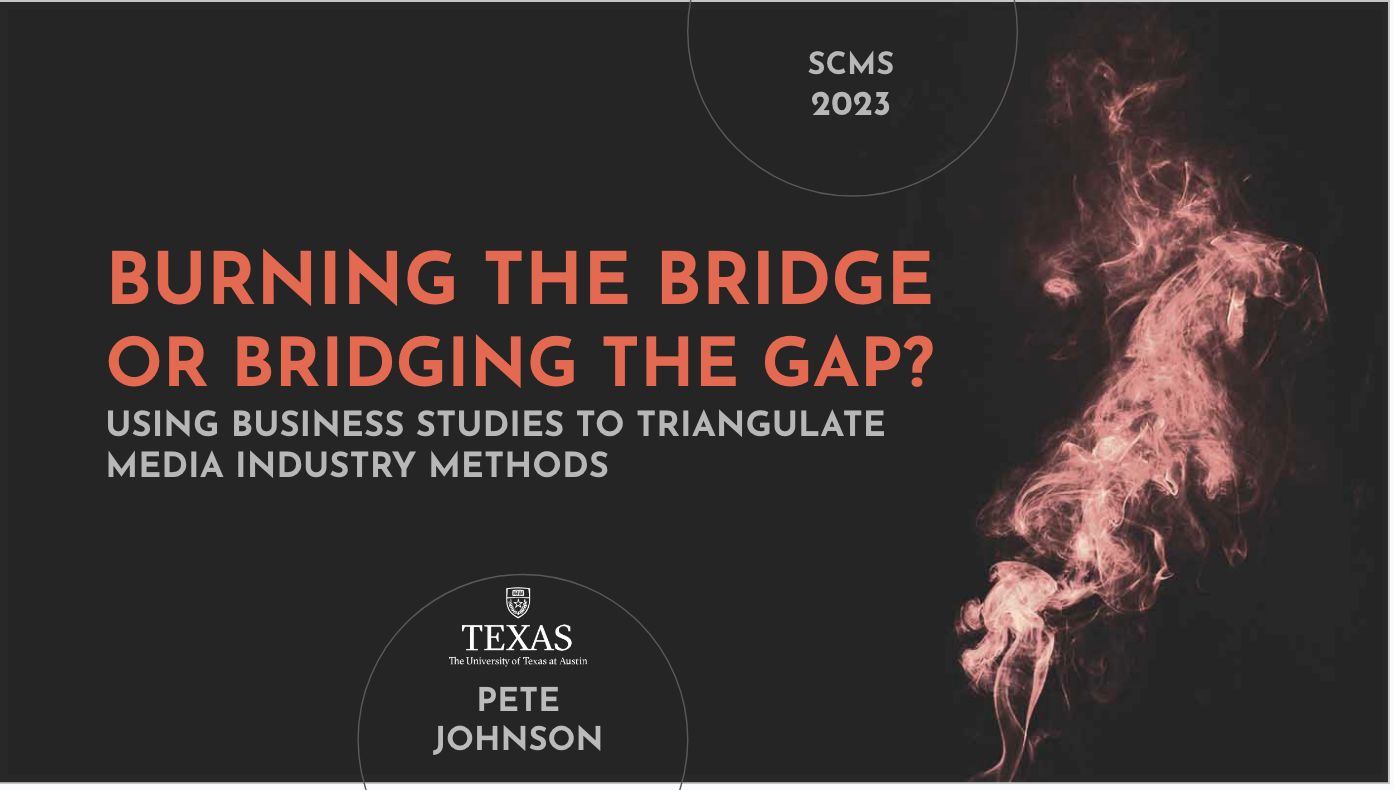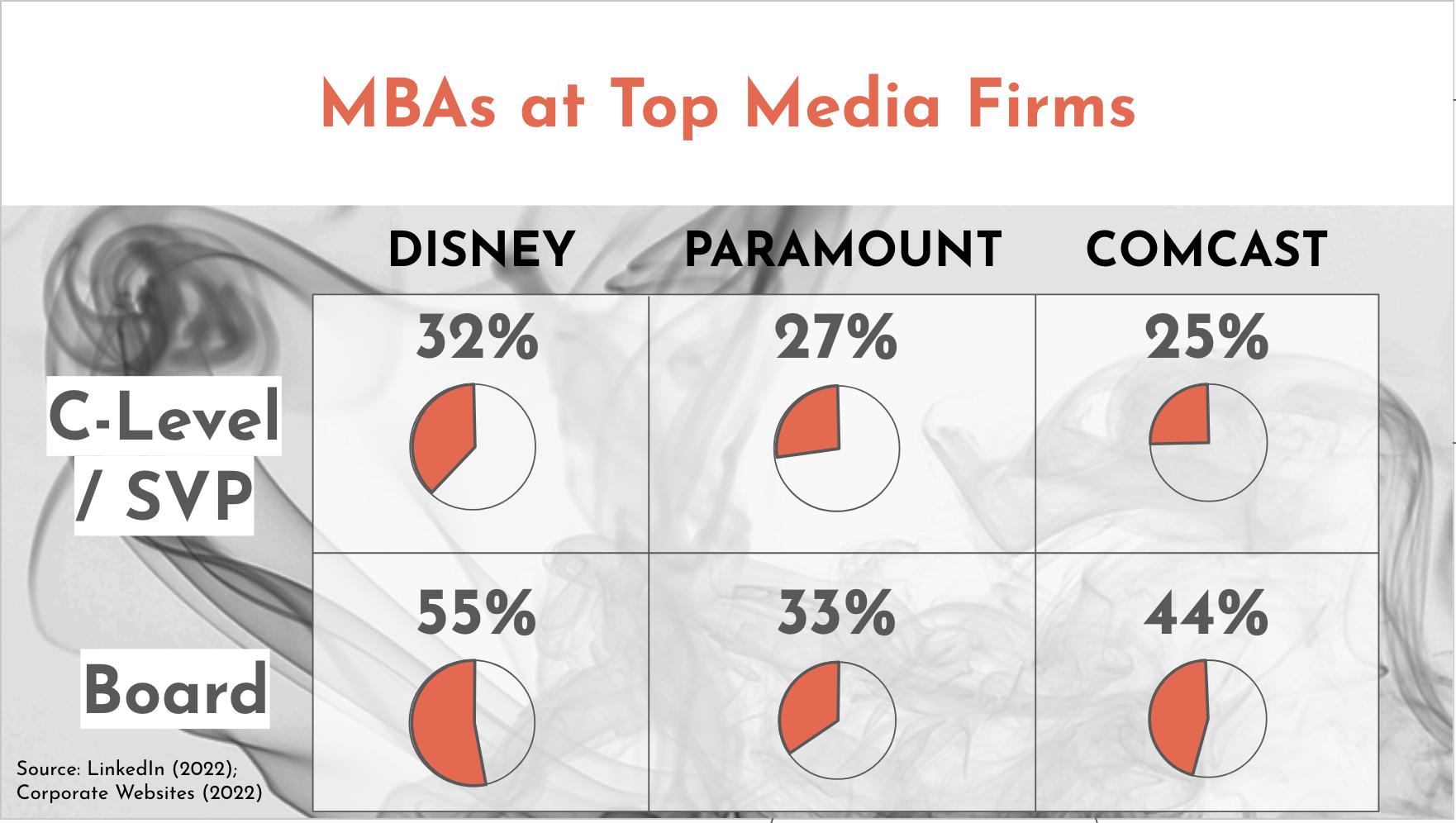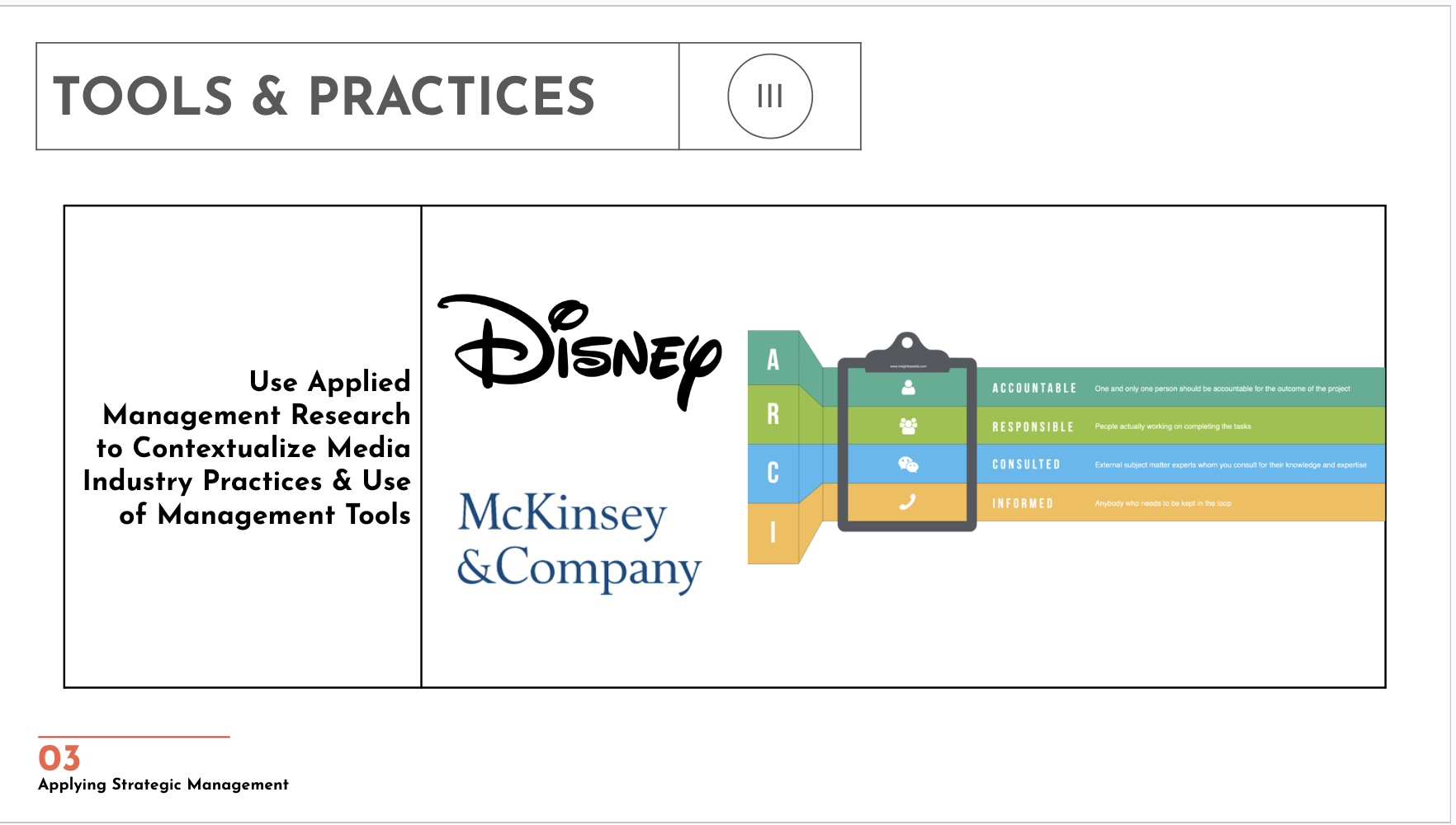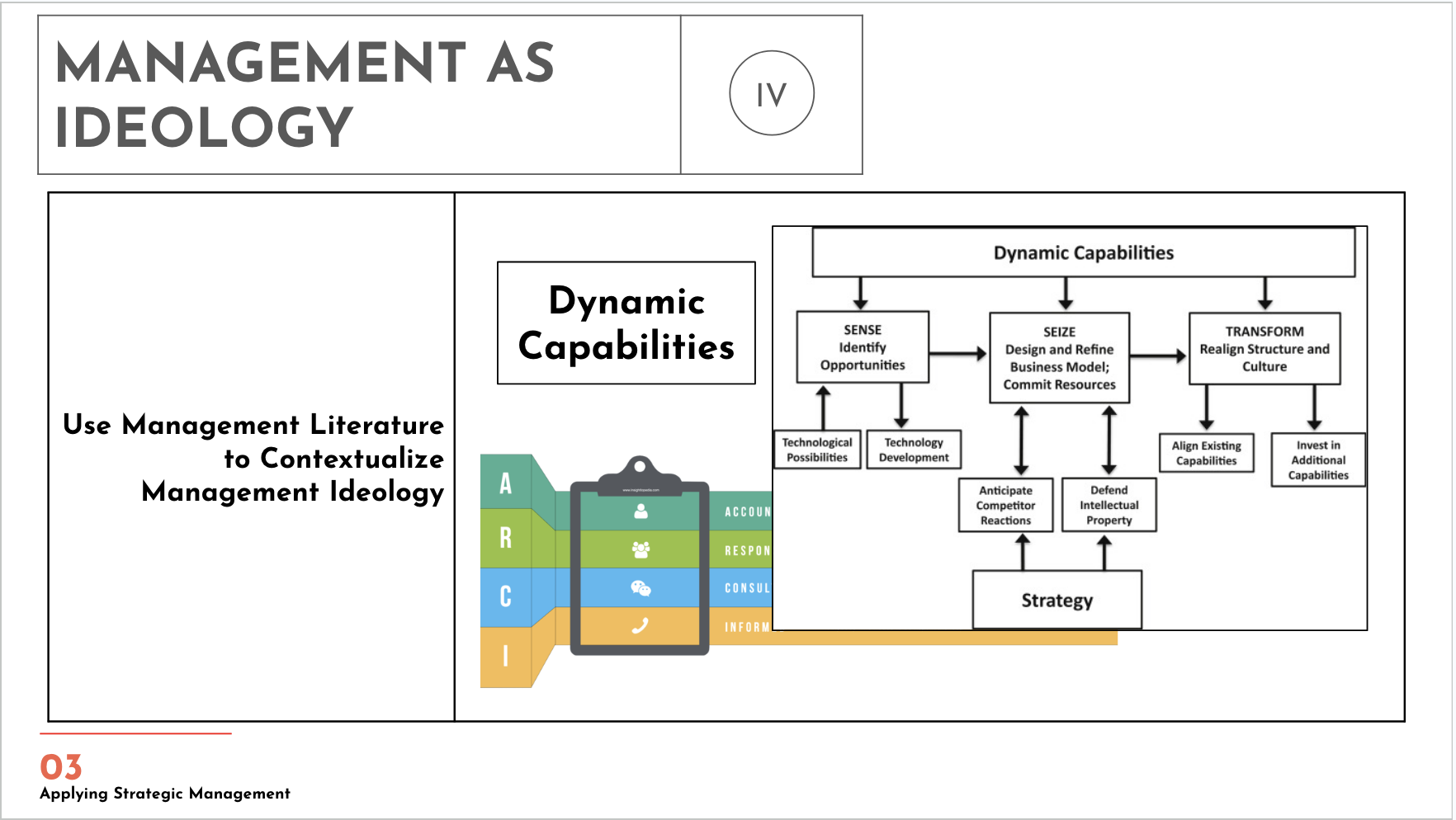Burning the Bridge or Bridging the Gap: Approaching Management Scholarship as a Critical Media Industry Scholar
Society of Cinema and Media Studies Conference, March 2023
Abstract: Media industry studies (MIS) (Lotz 2014), critical political economy of media (Corrigan 2018), and platform studies (Bonini and Gandini 2020) have all noted the methodological difficulties of studying firm-level behavior in media industries: the inaccessibility of boardrooms, the “black box” of platform algorithms, the corporate spin of interviews and trade magazines, and the general secrecy of corporate strategies. Certainly, the field of media management—though historically non-critical—has long provided a bridge between media and business studies to make sense of everyday media practices (Rohn 2022). The broad-based field of critical management studies also offers a means to critically approach executives, though not necessarily those in media industries. Similarly, strides have been made to foster industry-academia relationships (Holt 2013) and use corporate documents and trades (Corrigan 2018) to sift through corporate doublespeak. However, there still remains an opportunity for critical media industry studies scholars to more directly read, study, and cite business scholarship and engage with management scholars in order to bolster traditional MIS methods.
In this paper, I consider what this looks like in practice via a case study on the challenges and steps of engaging—both theoretically and interpersonally—with business scholarship. First, I detail my efforts to reach out to business faculty at my institution to facilitate my research in the U.S television industry. Second, I offer an auto-ethnographic account of a PhD seminar in strategic management and my in-depth dialogue with a management professor and Management PhD students. Although our divergent trainings and worldviews might lead to some dead ends and disagreements on key normative assumptions, this work has provided me with invaluable insight into not only the types of tools and research that real-world managers draw upon but also the taken-for-granted managerial ideologies that naturalize capitalist extraction. I ultimately argue that MIS should try to overcome the perceived incommensurability between administrative and critical research and engage with applied social sciences—not for collaboration per se but for a broader understanding of the type of scholarship that is fed to burgeoning managers and read by those at the top of the media hierarchy. In conclusion, by directly engaging with business research and researchers, this paper sheds light on how MIS can, in effect, “reverse engineer” the actions of MBA-educated executives and board members and, by extension, identify the contradictions between corporate spin and corporate reality.
Select Presentation Slides:






